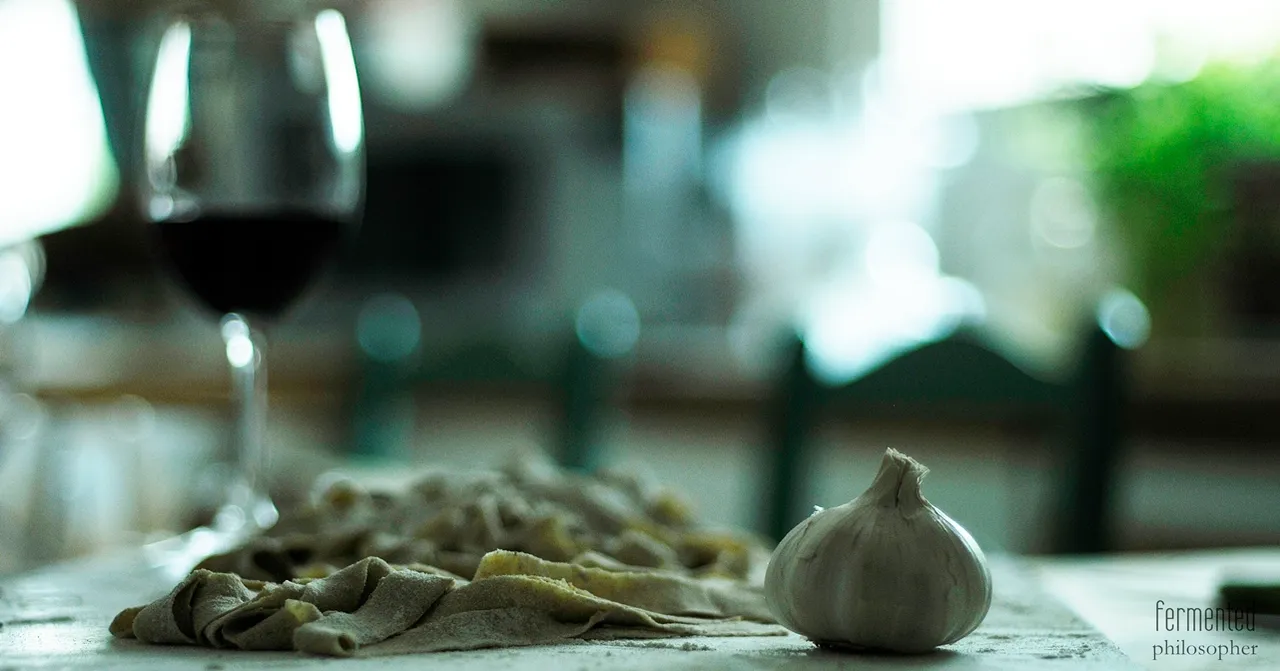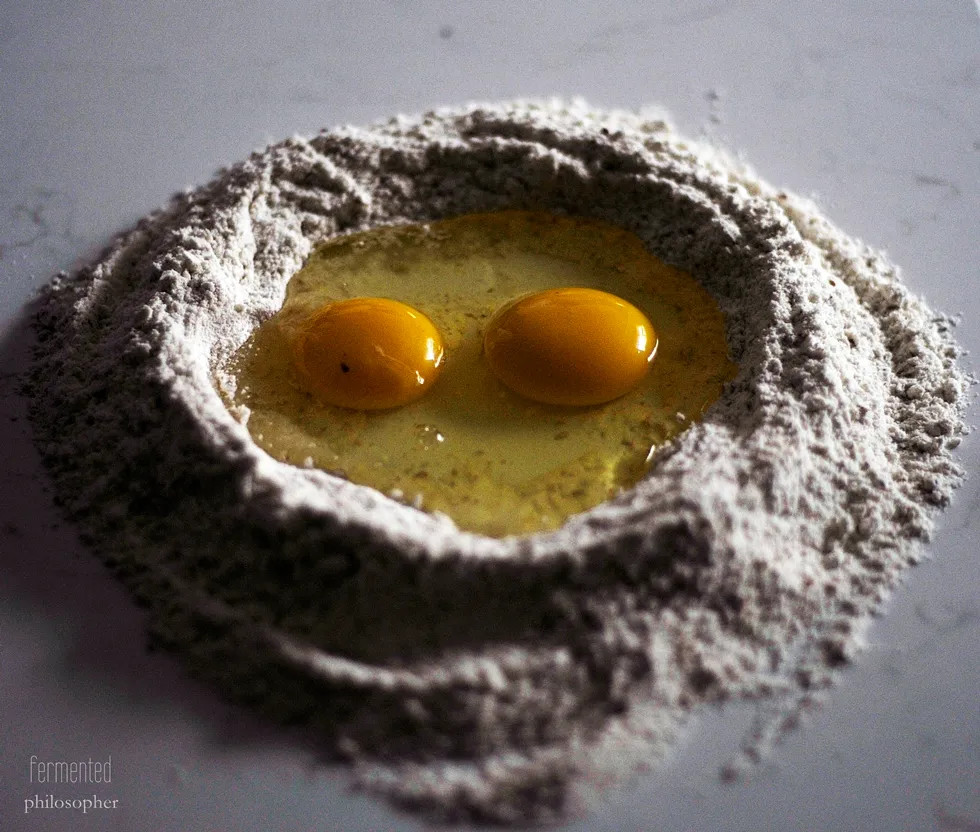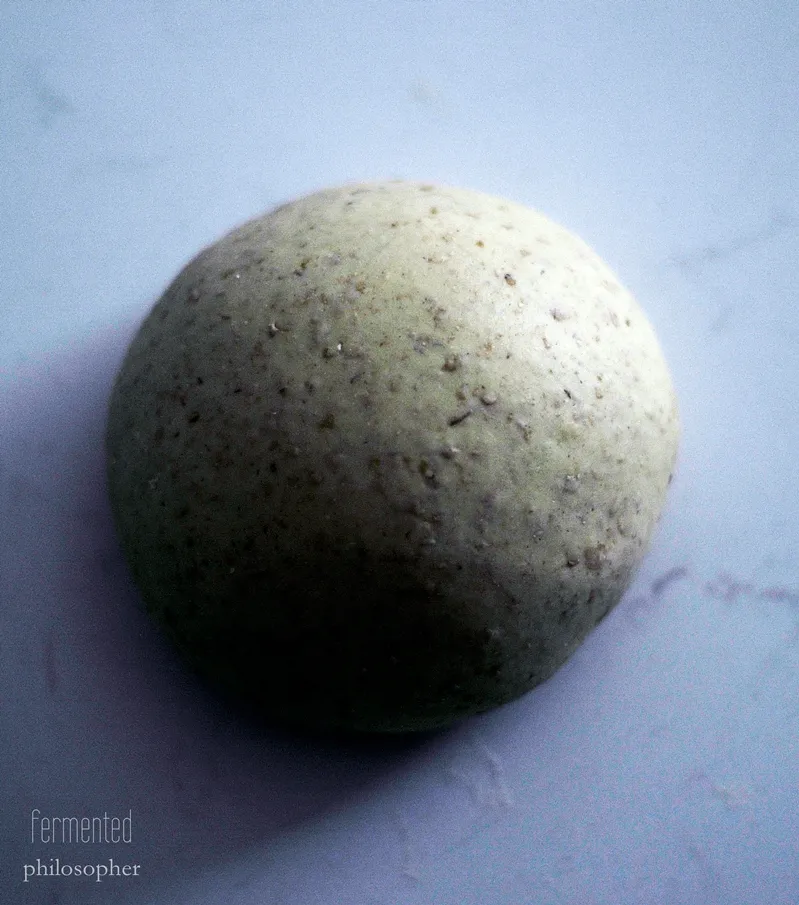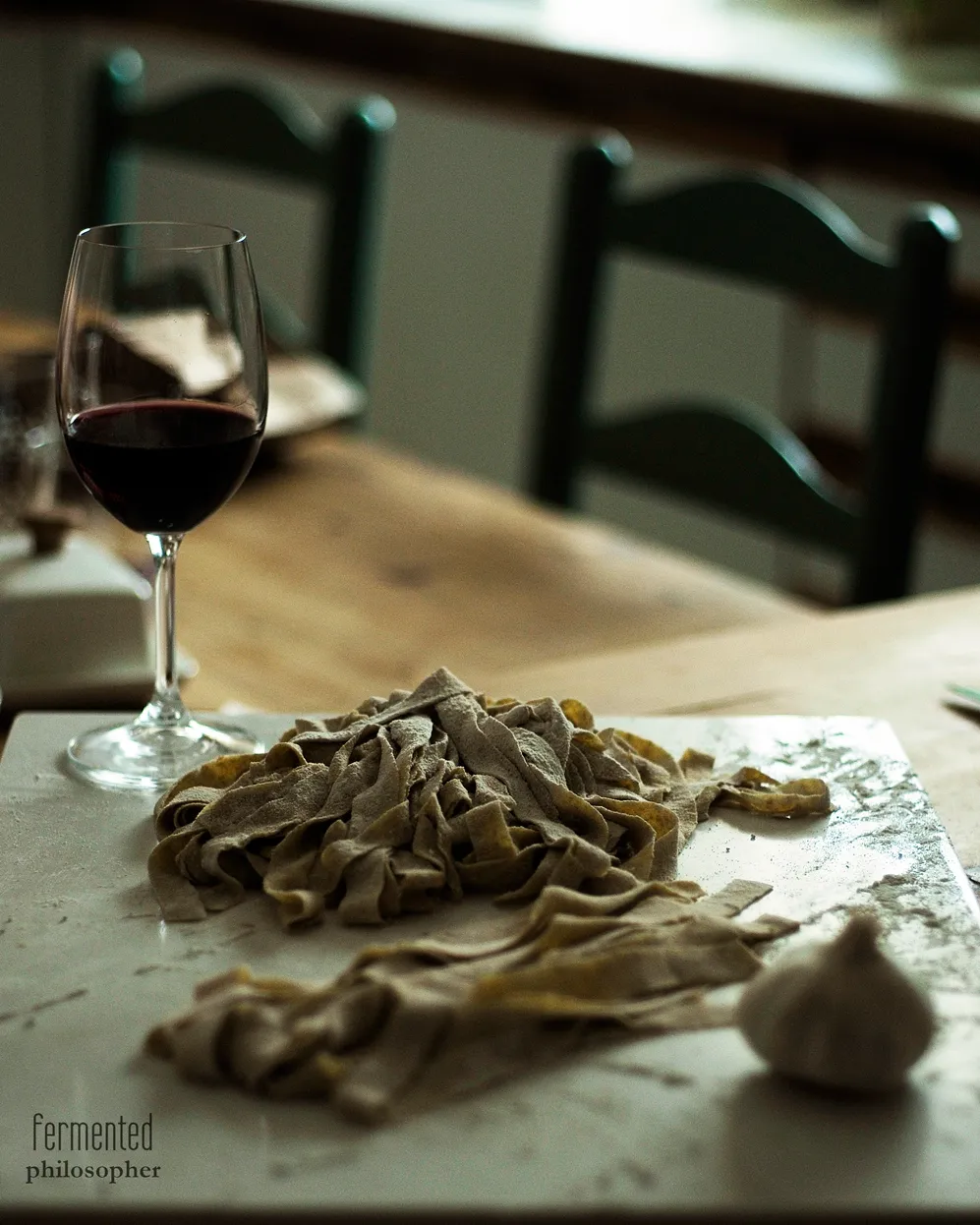
Fermentation, as said in the previous posts, is a lost art. Due to the lost art of fermentation, those who know how it works can experiment with it. In other words, those who know the rules of the game can break them. What does this mean? Simply, once you understand, you can apply. This is applicable to all things in life in my opinion. Once you truly understand something, you can take it out of the original context, apply it to a new context and get something new. This is similar to the stages of fermentation. You take something, add yeast to it and it changes completely. What does this mean to fermentation? It means, in my opinion, you can experiment. Who in the world would have guessed you can eat fermented pasta? But once again one can ask what does this have to do with the meaning of life? Fermentation and philosophy was a wild goose chase, fermentation and the meaning of life? You must think I, the author, must be crazy at this stage. Aren't we all a bit crazy? First things first, what is this piece about? In this piece, I would like to try and understand the meaning of life through the view of fermentation. If you want to stick around, please read further. If you want the short answer to the meaning of life through fermentation, please skip to the last paragraph.
Making Pasta

Fermentation is a rather complex phenomenon that can be explained really easily. Sugar is exposed to yeast, which eats the sugars and releases carbon dioxide and alcohol. The more complex side of this is the healthy "part". Lactic acid fermentation or lacto-fermentation is not done alone by yeast, but predominantly by the Lactobacillus bacteria. I am not going act in a way by trying to convince you that I know about this process. I am only an average person who likes to read about this stuff. (My dad has a nice saying: I know enough only to be dangerous.) The little that I know is that this kind of fermentation is very healthy. It helps with digestion and digestibility of food, it preserves vitamins and enzymes and it preserves the food from going bad quickly, i.e. it preserves the food (1). So what does this have to with pasta (and the meaning of life)? In my previous post, and in most of my upcoming posts, the assumption will be there that human life today is based on immediacy: we want a hamburger in the next ten minutes, I don't want to wait three days or a month or a year. This is also very true about pasta: if I want mac and cheese I want it now. I want to boil the pasta and in less than half an hour I want it on my plate. There is no time to waist. This is wrong according to me. Pasta should also be healthy. Why is normal shelf bought pasta not healthy? The sceptic that I am, I don't know what is in the pasta, regardless of what is on the back of the packet. A second reason is that it is only made from either heavily processed white flour or durum wheat.
Homemade pasta is where you can make pasta healthy. Once again, this takes time, and thus this will not be for everyone. Pasta stores well, get someone to make it for you. If you want to buy "homemade" style pasta, I think you will pay way too much. Pasta is dirt cheap to make yourself. It is really easy as well. The only expensive part of making pasta is the time you invest in it. You only need one egg, a handful of flour and some leftover sourdough (starter). In South Africa these items cost less than $1. Why pay more for pasta then? You mix all the ingredients together, and leave it overnight or for 10 hours.

The most interesting thing about fermentation is that you cannot see it happen, you can only see the effects of it. In other words, you can see the carbon dioxide either in the water you used (due to bubbles) or the bubbles on the surface of the dough. (The crumb structure or big holes in sourdough bread is also a sign.) You can thus not see the bacteria doing their thing. The beauty of the unseen. The beauty of what lies beneath the layer of visibility. Another interesting thing is that we are eating the leftovers of bacteria and yeast. We feed the bacteria sugar, they excrete alcohol and carbon dioxide, but also vitamins and enzymes. The most healthy part of fermented food is the good effect they have on your gut. Once you start to eat fermented food, you will start to crave it. Once you start making food yourself, you will crave for the taste. Nothing will ever taste the same again, food other people make will become less of an attraction. (Once again this does not apply to everyone.)
Once you feel it is time, you start to work with the dough again, cutting it in the shape you want to. You have the choice of a myriad of different pasta styles. Simplicity is always the best answer. Feel the dough in your hands, feel the life that it contains, feel the time you invested in it. (The same with a good wine or whisky: it is not that you spend money on an expensive product, no, you buy the time and experience it took to craft that wine or whisky.) Feel the work it took to make the pasta. You are part of a tradition that stretches back thousands of years: the making of food and the fermentation of food.

The Meaning of Life and Fermented Pasta
Ancient philosophers (like Plato and Aristotle) was obsessed with the meaning of life. For Plato, the good life leads to a moral life, for Aristotle the moral life leads to a good life. Something in that line. What this means is that the meaning of life is not something with a clear-cut answer. If there is a clear-cut answer given by someone you should be sceptical about it. I must apologize for the lack of clear answer, but to give one would be a lie. But to say there is no meaning to life is also a lie. There is, like I said, no clear-cut answer. If I know one thing in life, it is that life is complex and diverse. But what does this have to do with philosophy? And Fermentation? Let me start to try and answer this question.
How is philosophy obsessed with the question of the meaning of life? I think all philosophy can be read as either a response to the question what is the meaning of life or how to live a meaningful life. I can write a whole new post about this subject: Philosophy as the search for meaning. I think, if you as the reader will allow, we can just accept the fact that philosophy is a quest for the meaning of life. Also, as stated in my previous posts, philosophy is a lifestyle. It is not something you do, but something you live.
And now the harder part: how is fermentation an answer to the question of what is the meaning of life? And how does one connect pasta with it? (I will need to take a big sip of my whisky to answer this.) The history of pasta is almost like that of bread: the source is not written down, and a lot of different cultures had something resembling what we have now. But pasta and bread are both staple food for a lot of people. The meaning of life is not clear-cut in any way. We can in a way thus say that there is no apparent meaning of life, or there is nothing jumping at us about the meaning of life. This is not to say we can make meaning or that there is no meaning to life. As in fermentation, we cannot always see what lies underneath the surface. We don't know what is going on beneath the surface of what we perceive. But we can see the effects of it. Like fermentation we keep on going, we eat we sleep we go on without stopping. But we also stand still and appreciate the beauty of life in certain moments. We hold the dough of our pasta that has been fermenting overnight in our hands, tasting the whisky and smelling the fresh garlic onion thyme and mushroom from the garden on the stove; and think about the meaning of life. We stand and think what this all means. We feel surrounded by all that is life, all that we have created and we look down at the dough in our hands and we think: I have no idea what this all means.
Sources:
(1) https://www.culturesforhealth.com/learn/natural-fermentation/what-is-lacto-fermentation/